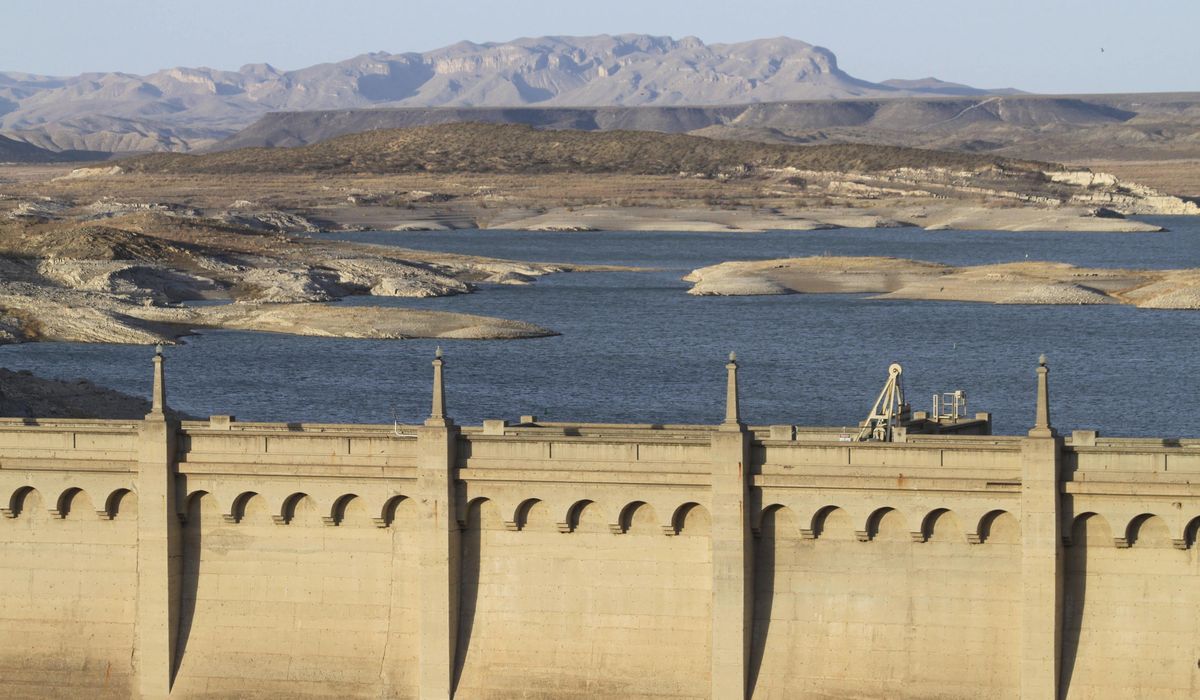


The Supreme Court cleared the way for the federal government to intervene in a Western state water dispute in 2018, but having gained an inch, the states worry that the feds now want a mile.
Attorneys for Texas and New Mexico argued Wednesday that the high court should be able to approve a recently reached consent decree on the division of water from New Mexico’s Elephant Butte Reservoir without the buy-in of the federal government.
The Biden administration disagreed. “A consent decree requires consent,” said the Justice Department’s Frederick Liu, the U.S. assistant to the solicitor general, in the hour-long oral argument before the Supreme Court.
“The proposed consent decree in this case, however, would dispose of the U.S. claims without its consent,” Mr. Liu said. “The decree would impose obligations on the United States without its consent. The decree would bind the United States to an interpretation of the Rio Grande Compact that is contrary to the compact itself. For each reason, the proposed decree should be rejected.”
That stance has frustrated the states, which received the go-ahead on the proposed settlement from a special master in July after a hard-fought 10-year battle over water rights.
Under the agreement, New Mexico farmers would receive 57% of Rio Grande Project water from the Elephant Butte dam, an increase of tens of thousands of acre-feet, while Texas would take 43% of the groundwater.
Justice Neil Gorsuch quizzed Mr. Liu on why the states shouldn’t be able to reach their own settlements on water appropriations without federal intervention, which could be an ill omen for the Justice Department.
It was Justice Gorsuch who wrote the 9-0 opinion in the 2018 case Texas v. New Mexico and Colorado allowing the federal government to intervene in the water dispute to defend its “distinctively federal interests.”
“I’ve got to say you’re making me regret that decision,” Justice Gorsuch quipped, prompting laughter in the courtroom.
The 2024 case went straight to the Supreme Court as the court of original jurisdiction in disputes between states under Article III of the U.S. Constitution. Both the 2018 and 2024 cases are called Texas v. New Mexico and Colorado.
“You’re asking us to say that two states cannot resolve their disagreement in this court consistent with this compact so long as the United States objects,” Justice Gorsuch said. “That’s the upshot of what we’re being asked to enforce here.”
Mr. Liu argued that the states “can settle their own claims so long as they do so consistent with laws that govern consent decrees.”
“If we’re thinking about who is imposing on who in this case, it’s not the United States imposing on the states, it’s actually the states imposing on us,” Mr. Liu said. “Because we’re leaving the states free to do what they want, they’re the ones who are bringing us into this by saying, ‘We’re not just withdrawing from the litigation, we’re taking you with us and on the way out, we’re going to impose a host of obligations on you.’”
Justice Ketanji Brown Jackson appeared to lean in the federal direction, citing a previous decision that found “there were some limits, that you can’t have a consent decree that disposes of intervenors’ claims without their consent.”
“Am I misreading that?” she asked. Mr. Liu replied: “No, I think it’s clear as day.”
Justice Gorsuch said that “it’s a compact between the states that we’re adjudicating here.”
“We have a consent decree between two states. They agree. The special master has found that agreement is consistent with their compact. It doesn’t purport to settle any claims that the federal government might have,” he said.
To declare that the federal government has independent litigating authority in cases between the states “seems to me a dramatic expansion of this court’s original jurisdiction, not just in this case, but potentially with ramifications going forward,” Justice Gorsuch said.
• Valerie Richardson can be reached at vrichardson@washingtontimes.com.
